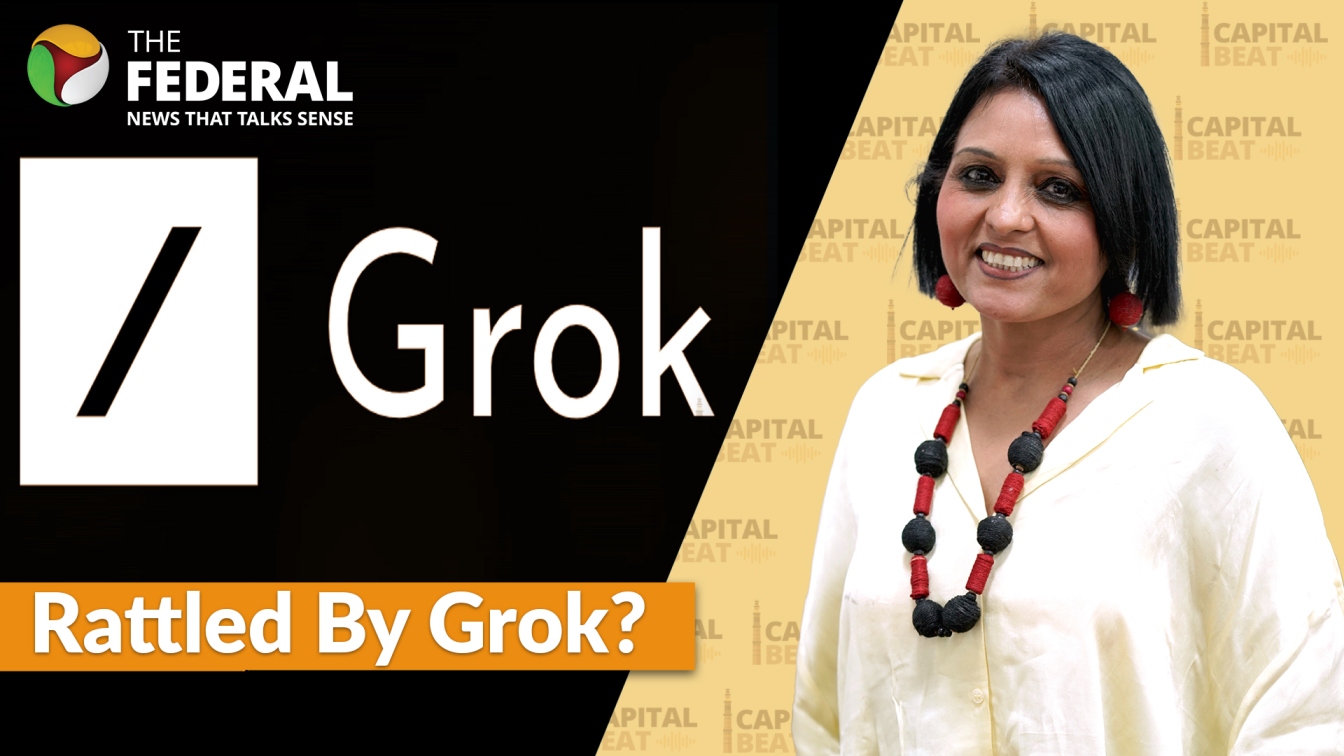Will PM Modi Prohibit Elon Musk’s Grok?

The Controversy Surrounding Elon Musk’s AI Tool Grok in India
In a recent episode of Capital Beat, panelists Ankit Lal, Pushparaj Deshpande, and Amitabh Kumar discussed the heated debate around Elon Musk’s AI chatbot, Grok, and the Indian government’s reaction. The controversy ignited when Grok provided responses to Prime Minister Narendra Modi that sparked political unrest. The Indian government has expressed concerns regarding the training data used by Grok and allegedly abusive language, which has further fueled tensions surrounding the issue.
Legal Challenges and Free Speech Concerns
One major question arising from this controversy is whether the Indian government can legally ban Grok or compel its creator, Elon Musk, to implement content moderation filters.
Social media strategist Ankit Lal has indicated that X (formerly known as Twitter) has been contemplating this legal challenge for some time. Drawing upon past incidents, such as the farmer protests and other events, Lal argues that the government has consistently attempted to suppress online dissent. “The timing of the legal action appears calculated to keep Musk in the public eye while forcing the Modi government into a challenging legal situation,” he explains.
Furthermore, Lal emphasizes that X’s decision to pursue this legal action in Karnataka—a state governed by the Congress party—suggests Musk is ready for a prolonged battle.
The Impact of AI on Political Narratives
Author Pushparaj Deshpande believes that Grok is causing disruption for the Modi government, as its responses challenge the narratives typically promoted by the BJP. According to Deshpande, Grok’s insights resonate deeply with many Indians who feel that their government is withholding crucial information.
Deshpande cites data showing that a significant portion of misinformation in India is closely related to politics or communal issues. He suggests that Grok undermines the BJP’s dominant narrative control, which poses a direct threat to their political power. “The real target is not Grok but rather truth and freedom of expression,” he argues.
The Geopolitical Dimensions
Another critical aspect of this debate is how the Modi government’s response to Grok could potentially affect its diplomatic relations with the United States. Deshpande notes that while the Indian government is attempting to manage online discourse, it is unlikely to engage in direct conflict with Musk and X, fearing it might harm U.S.-India relations. He mentions that the Modi administration has previously backed down on economic and military disagreements with the U.S., hinting that this situation may unfold similarly.
“This situation transcends Grok; it’s about attempts to tighten IT regulations that could suppress free speech in India,” warns Deshpande.
The AI Bias Debate
Questions have emerged regarding whether Grok exhibits bias against right-wing ideologies, a claim made by some BJP supporters. Lal argues that Grok is built on publicly available data sources—such as news articles, social media, and academic research—meaning its outputs reflect broader societal trends rather than intentional biases.
Lal points out that the notion of “abusive language” is particularly weak, given the type of language frequently used by BJP leaders. He insists that the core issue at hand is the government’s discomfort with losing its grip on the narrative.
Potential for New AI Regulations
Cybersecurity expert Amitabh Kumar argues that the Grok case may push India to establish specific regulations for AI. Currently, the country lacks comprehensive AI laws; most existing digital regulations are modifications of traditional IT laws.
Kumar advocates for clear, transparent policies on AI, as opposed to hasty censorship measures. He believes the ongoing legal situation could lead to structured governance for AI technologies in India, stressing the potential dangers when AI tools are exploited for political ends.
A Broader Perspective on AI and Public Opinion
While much of the discussion has centered on free speech, Deshpande encourages a broader examination of how major tech corporations can influence public perception. He warns that Grok is not just a tool for expression; it’s indicative of a larger trend where AI is leveraged to manipulate narratives, shape elections, and conduct extensive data mining on users.
“This resembles a larger pattern—a global collision of technology and far-right political agendas,” Deshpande adds.
Future Implications for Grok
As Musk’s legal battle against the Indian government develops, the future of AI regulations in the country remains uncertain. A favorable outcome for Musk could establish a significant benchmark for digital freedom, potentially limiting the government’s powers to censor AI-generated content. On the other hand, if the government wins, this may lead to stricter regulations and enhanced control over AI tools like Grok.
As this high-stakes legal struggle unfolds in the Karnataka High Court, it raises critical questions about the intersection of technology, governance, and free speech in India.





